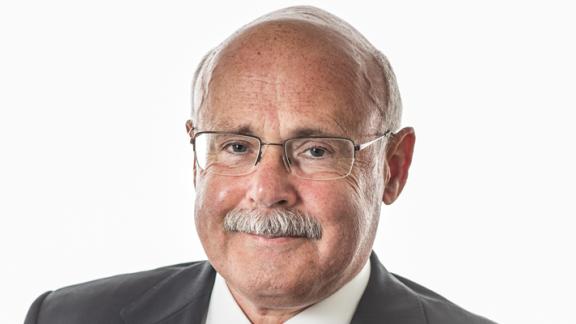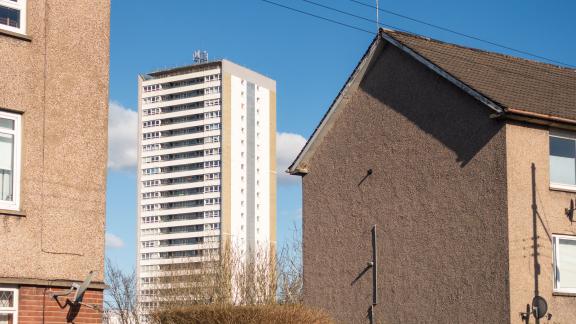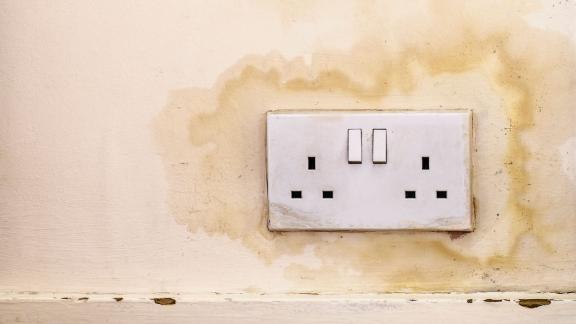How social landlords can help the NHS beat COVID-19 and tackle long-term health challenges

Housing associations can play a key role in helping the NHS defeat COVID-19 and combat its far-reaching impact on people’s physical and mental health. Julian Baust, a board member at social housing provider, settle, and deputy chair of Cambridge and Peterborough NHS Foundation Trust, explains.
As we all seek to cope with the immediate and longer-term effects of the coronavirus pandemic, partnership working between the health and housing sectors will be crucial to restoring the nation’s physical and mental health, while easing the strain on the over-stretched NHS.
As a housing association, at settle we support more than 22,000 residents in over 9,500 homes across Hertfordshire and Bedfordshire. We have lately been taking stock of our organisation’s response to the COVID-19 pandemic, the lessons that can be learned and how this will shape services for residents and our wider communities into the future.
Our findings and recommendations highlight vital ways in which the UK’s nearly 2,000 charitable housing associations can support the NHS and other health partners in tackling the challenges now confronting us nationally, including increased physical and mental ill-health and a rise in unemployment. These include:
- using the community data we have collected during the past year to identify those who are vulnerable to the pandemic, and work with health partners to target advice and support appropriately.
- aligning our work around reducing isolation and improving social connections with local NHS trusts’ mental health targets, particularly through our proposal to establish a network of community champions, working to better meet residents’ needs and address issues at a neighbourhood level.
- mitigating the workforce challenges the NHS is facing by exploring how we can support our residents to access job opportunities within the health service and provide the affordable staff accommodation that is needed alongside this.
Embracing partnership opportunities
Our experiences over the last difficult year have reinforced to me how much more could be achieved by proactive teamwork between agencies on an ongoing basis.
Housing association resources are in contact with some of the most vulnerable in society. This contact is absolutely invaluable.
Our response to the pandemic at settle has strengthened our relationships with key stakeholders. As we prepare for what the future may bring, we recognise the importance of further developing these partnerships with local authorities, primary care networks and community organisations in our neighbourhoods.
New neighbourhood model
I have been heartened by how our colleagues at settle have truly gone above and beyond to support our customers and communities under such difficult circumstances and the appreciation and recognition they have received from our tenants and residents.
As a result, we are developing a new neighbourhood model. Due to be launched later this year, this model outlines how we plan to deliver services which make a positive difference to people’s lives by tackling issues that impact on their health, wellbeing and job prospects.
To reduce social isolation and promote individuals’ sense of connectedness to society we also propose to establish a network of resident community champions. They would be supported by a ‘community connector’ at settle, working to build relationships with local health trusts and primary care networks, as well as local authorities and other housing providers. Working in partnership, we can ensure our efforts are focused where they can do the most good, especially around mental health and wellbeing.
More than a landlord
Serving on the board of a community and mental health NHS foundation trust, in addition to the board at settle, has highlighted for me the well-known connection between housing, health and well-being and the contribution housing and housing related services can make to population health management.
As a social housing provider, our purpose at settle is to help people struggling to find a place to live so that they can stay comfortably in their homes and live the life they choose. Throughout these past few months, we have rediscovered the importance of going beyond the basics and being more than just a ‘landlord’.
Hence our neighbourhood model focusses on gathering and harnessing data so that we can provide targeted, flexible, customer-centred services through a revitalised operating model.
This will involve working closely with customers, communities and partners – as we have throughout the pandemic – to deliver good-quality, responsive services which are tailored to local needs and meet the challenges we all face at a system level, at place and in our neighbourhoods.



